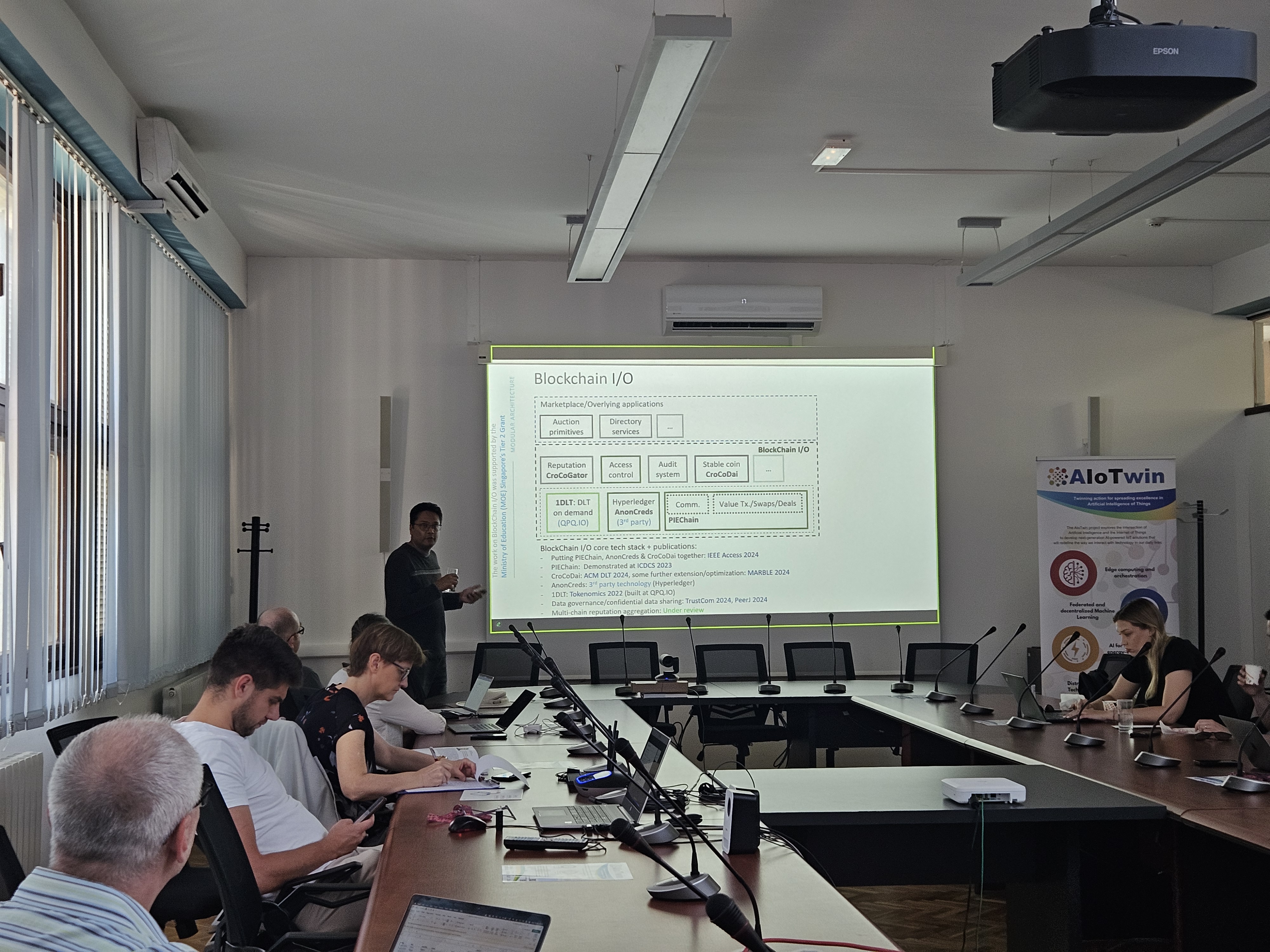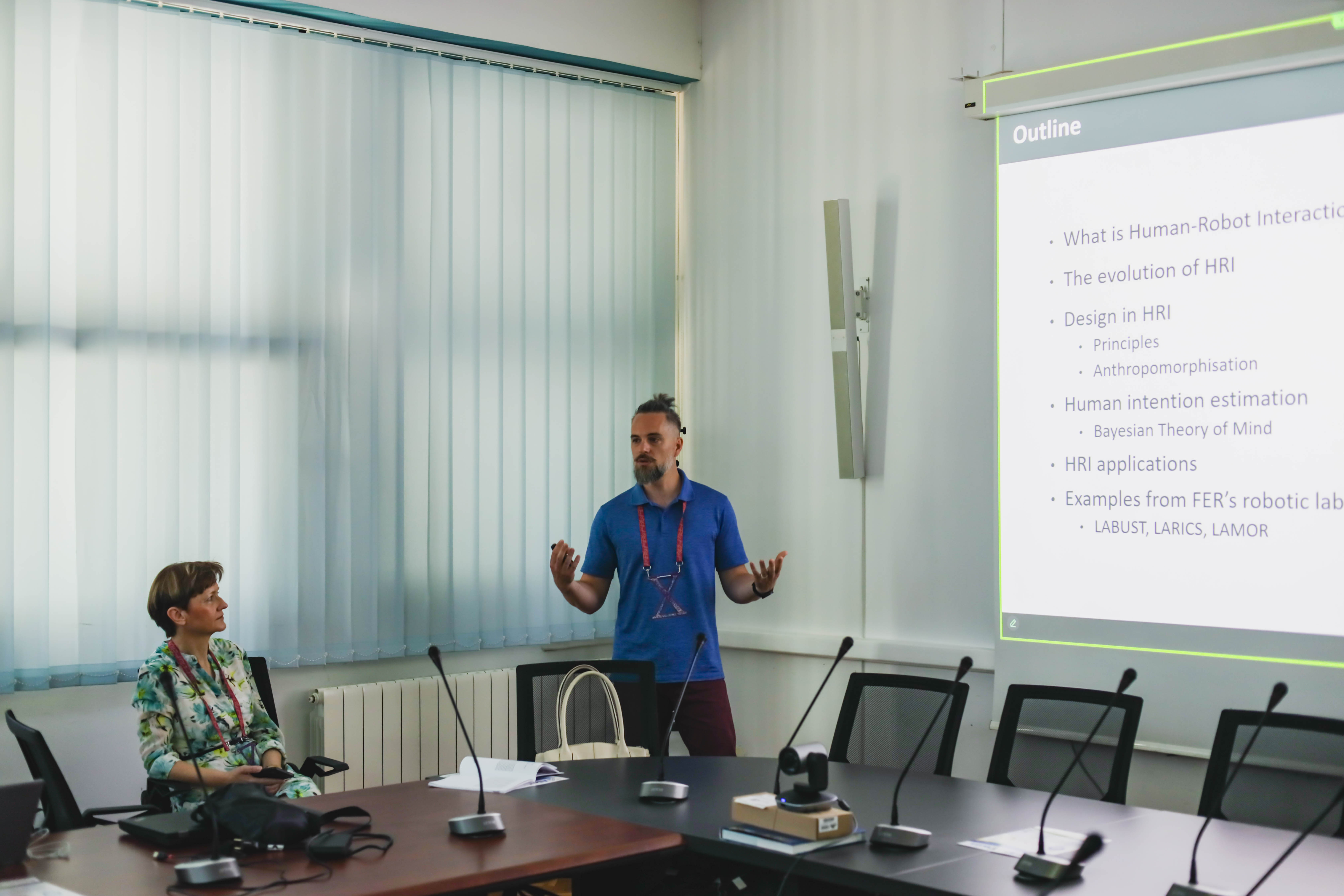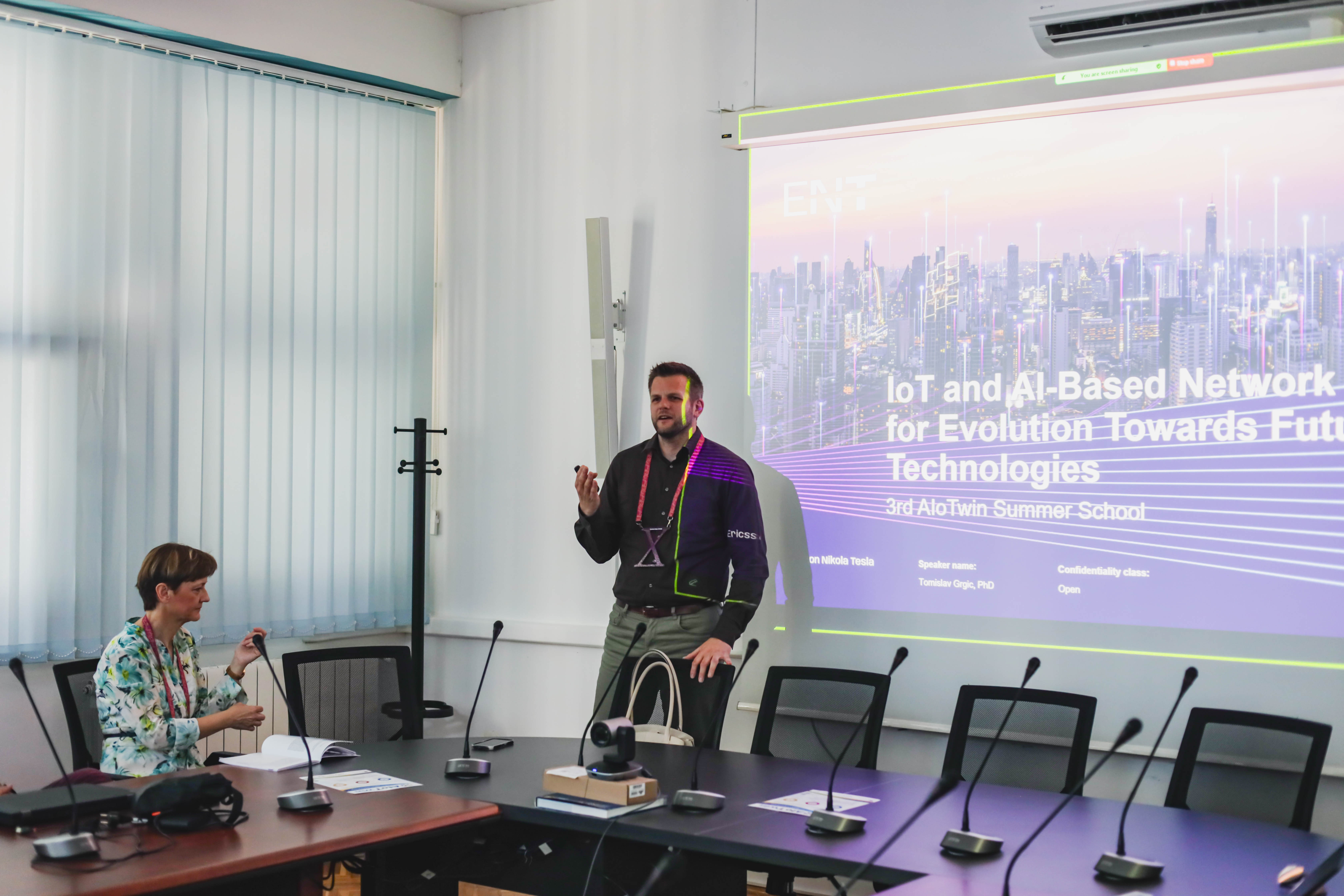Anwitaman Datta - Privacy-preserving blockchain solutions
Blockchain technology is considered crucial in the design of trustworthy decentralized information systems and infrastructure. In its simplest avatar, a blockchain enables secure tokens transfers in digital marketplaces, building upon which, researchers have extended capabilities to incorporate other desirable properties such as programmability, efficiency, privacy, and price stability. However, these properties do not always generalize to a setting across multiple independent blockchains. Considering the growing number of existing blockchain platforms but the lack of an overarching framework which can allow a larger scale decentralized system of (decentralized) systems, several key blockchain interoperability as well as security & privacy primitives have been developed in the context of Blockchain I/O project for creating a cross-chain marketplace. This includes mechanisms for decentralized reputation and credential systems, which drive fine-grained access control where a decision to carry out a specific transaction, or access to certain resources are conditioned, while credentials are created and disclosed in a privacy aware, need-to-know basis.
Anwitaman Datta joined De Montfort University, UK in October 2024 as a Professor of Cyber Security and he holds an associate professorship (on leave) at the College of Computing and Data Science, Nanyang Technological University, Singapore. His core research interests span the topics of large-scale resilient distributed systems, information security and applications of data analytics. Presently, he is exploring topics at the intersection of computer science, public policies & regulations along with the wider societal and (cyber)security impact of technology. This includes the topics of social media and network analysis, privacy, cyber-risk analysis and management, cryptocurrency forensics, the governance of disruptive technologies, as well as impact and use of disruptive technologies in digital societies and in government’s technology stack.
Ivan Marković - Human-robot interaction
Human-robot interaction is a research field dedicated to understanding, designing, and evaluating robot systems for use by or with human. In this talk we shall take a look into the fundamental principles of how autonomous robots operate and couple it with an early history of human-robot interaction and certain psychological aspects of the field. Interestingly, studying robotic systems for better human-robot interaction not only enhances the engineering aspects of the problem, but also teaches us something about how to understand humans themselves better. We shall also discuss multimodal interaction and thereafter provide an overview of the Bayesian Theory of Mind for estimating human intentions. Besides the introduction on the subject of human-robot interaction, the talk will also present recent results on the topic carried out within the activities of the Laboratory for Autonomous Systems and Mobile Robotics of the University of Zagreb Faculty of Electrical Engineering and Computing, Croatia.
Ivan Marković is a Full Professor at the University of Zagreb Faculty of Electrical Engineering and Computing, Croatia (UNIZG-FER) where he leads the Robotic Perception and Sensor Fusion group within the Laboratory for Autonomous Systems and Mobile Robotics – LAMOR (http://lamor.fer.hr). He received the M.Sc. and Ph.D. degree in Electrical Engineering from the UNIZG-FER in 2008 and 2014, respectively. His research is focused on various aspects of estimation theory, sensor fusion, and machine learning with applications to robot and vehicle autonomy and human-robot interaction. He received the National Science Award by the Republic of Croatia (2023), the Young Scientist Award "Vera Johanides" from the Croatian Academy of Technical Sciences (2018), and the Silver Plaque "Josip Lončar" UNIZG-FER for outstanding doctoral dissertation (2014). He has actively participated as a researcher in about 20 research and development projects at national and EU level. He was a visiting researcher at INRIA Rennes-Bretagne Atlantique, Rennes, France, under the supervision of Prof. François Chaumette. He serves as the Editor-In-Chief of the T&F journal Automatika indexed in the Science Citation Index Expanded. He is a member of the Institute of Electrical and Electronics Engineers(IEEE), IFAC Technical Committee on Robotics, and the Croatian Society for Communication, Computing, Electronics, Measurement and Control (KoREMA).
Tomislav Grgić - IoT and AI-Based Network Enablers for Evolution Towards Future 6G Technologies
During this decade, Telco providers have been building strong 5G networks that improved User Experience and provided brand new cloud-native network design to support Low Latency, Network Exposure, or Massive IoT. Although substantial investments have been made, full business potential is still to be unlocked. 5G Advanced, as a currently emerging and use case oriented standard, introduces Intent-Driven networking, AI-powered and service aware RAN, and support for Reduced Capability (RedCap) devices. This is an important step in the evolution of cellular wireless networks towards 6G, which is expected to mark the next decade. This lecture will provide a brief Ericsson overview of what we can expect from a future 6G network, and what are the key IoT and AI enablers that will steer the technological evolution towards next generation 6G network. Topics such as precise Indoor Positioning, Deterministic Networking, Ultra Energy Efficiency or Cyber-Physical Interaction, will be addressed by a future AI-native architecture, characterized with Intelligence-Everywhere concept, Distributed Data Architecture, Autonomous Operations, and AIaaS.
Tomislav Grgic received his dipl.ing (2006) and PhD (2013) degree from the University of Zagreb, Faculty of Electrical Engineering and Computing (FER). He was an assistant and a post-doc researcher at the same Faculty, at the Department of Telecommunications, between 2006 and 2017, in the areas of context-based online charging and network policies in the next generation mobile networks. He published a number of scientific and expert papers, and participated in several research projects with partners from industry and academia. In 2017 he continued his career in industry, working for Ericsson Nikola Tesla (ENT) as Solution Manager for Telco Core and Cloud, to present day. He is an end-to-end technical lead in pre-sales and post-sales activities for ENT's Telco customers, mainly covering areas of core network planning & transformation, cloud-native 5G network infrastructure, and telco packet core. He is involved in several collaboration initiatives between FER and ENT, and contributes as a lecturer in one Master programme Course at FER.



